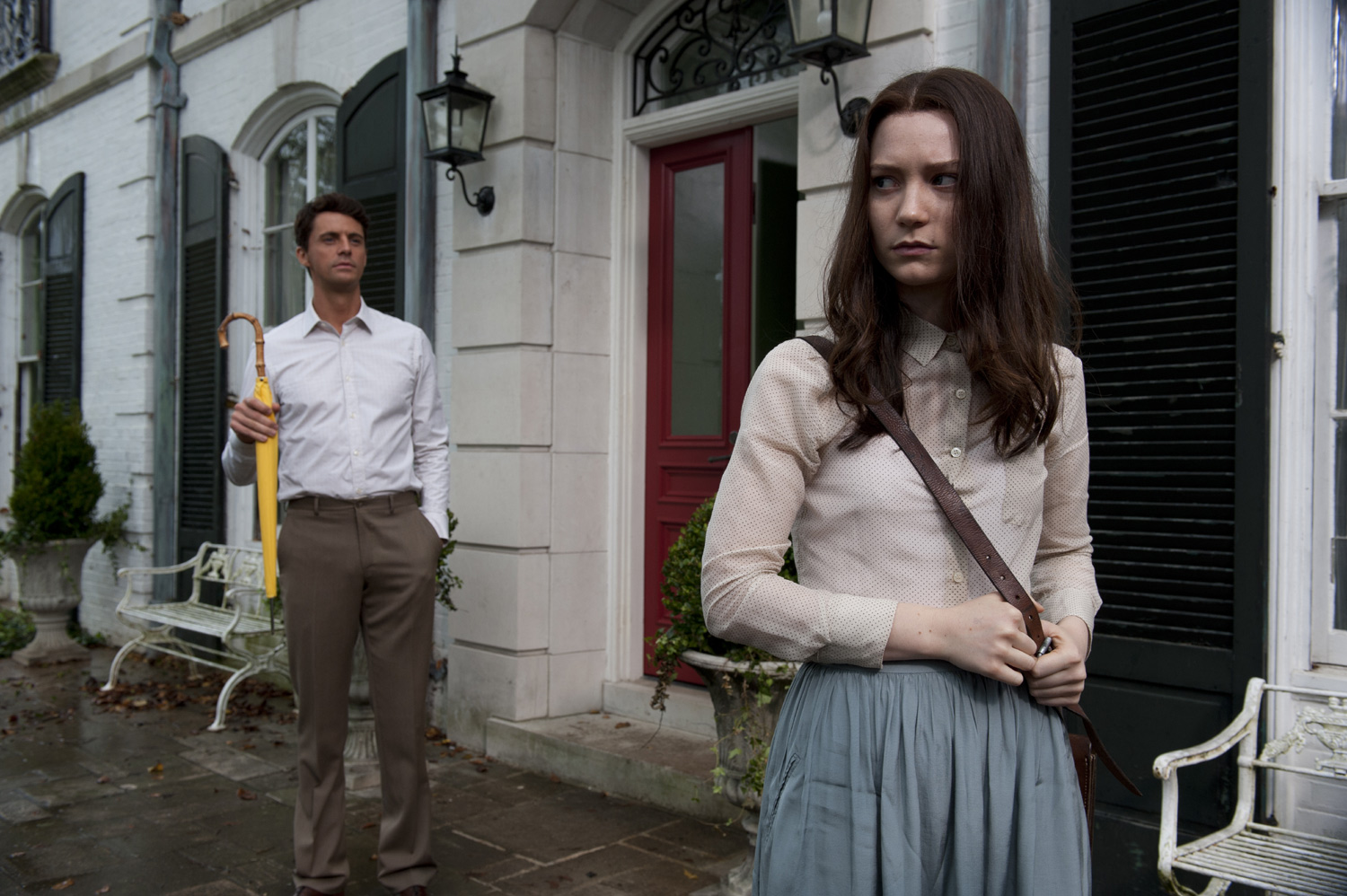Mia Wasikowska, Matthew Goode (Stoker, 2013)
Cakes are a staple of
Park Chan-Wook's films. The tantalising Baker's Shop in Lady
Vengeance reflects the delicious intricacies of the titular
Lady's plan, and the dazzling white cake symbolises a purity she is
desperate to regain. In Thirst, a fat patient regales us with
a tale of generosity, of how he gave up his cake to a starving mother
and daughter, foreshadowing his charity of blood later in the film.
At the beginning of Stoker, the cake is a birthday cake, and
it's candles are choked out as the life of Mr. Stoker ends, and the
innocent of another is snuffed.
Mia Wasikowska is
wonderfully cast here as young India Stoker, a pallid and acutely
intelligent being, all sonorous eyes and perfectly downed frocks, now
fatherless and in the care of an inept mother. She perceives the
world in alarming detail: an eggshell cracking is magnified to
supernatural levels, a spider's leg's pluck at her nylon stockings as
her fingers on a piano. Chan-Wook frames the world with these tiny
details write large, emphasising the dual nature of his world to
create a disquieting tapestry of Southern Gothic and stylish Korean
tension, reminiscent of the nauseous patterns found in his earlier
work.
The tale that is
presented here, written by Wentworth Miller, is an economic and
sombre tale of impertinent India's coming of age, and her unravelling
of the history and motivations of her picture perfect uncle, Charlie,
played with impeccable charisma and mendacity by Matthew Goode.
Nicole Kidman, on fine form, displays lupine salaciousness as her
mother, a woman desperate to relive the halcyon days of her marriage
through the simulacrum of young Charlie.
As India's uncle
circles, predatory, we're never sure exactly where his intentions
lie, and Chan-Wook gently disturbs our preconceptions of this fledgling family arrangement with duplicitous imagery and subtle
misdirection .In India he creates a conundrum of stoicism whose mask
is occasionally dropped with split-seconds of thrilling violence,
mirrored beautifully by Clint Mansell's score which is never more
than a heartbeat away from erupting into calamitous electronic
storms. Special mention should also go to the two haunting piano
solos written for the film by Philip Glass that form the foundation
of one of the most memorable scenes in the film.
With woozy fades
between eye and egg, hair and grass, manually reflected by India
flicking between two pictures in a book to create a third, Park
Chan-Wook synthesises an unsettling hybrid in Stoker, the
effortless blend of a girl's coming of age with brooding Southern
Gothic juxtaposed his signature abrupt edits. This off-kilter
thriller is brimming with dark imagery and although it is less likely
to shock than his native language films, it is no less entertaining,
and a confident foray into Hollywood by one of the most talented
directors of our time.

No comments:
Post a Comment